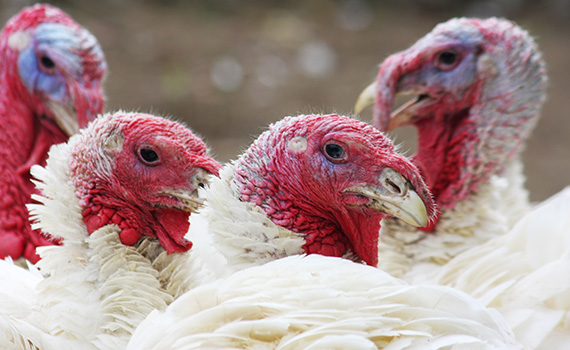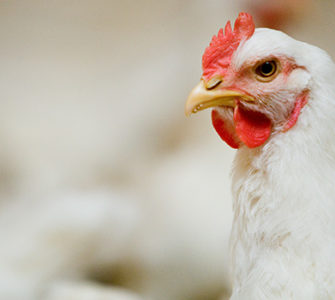Loose stools linked to blackhead disease transmission in turkeys
Enteric inflammation and loose stools can affect the rate that turkeys contract blackhead disease and may explain why some turkey flocks with the disease show higher mortality than others, indicates research presented at the 2018 International Poultry Scientific Forum.
Turkeys laterally transmit the causative organism, Histomonas meleagridis, by cloacal uptake of contaminated feces. Flock mortality associated with blackhead disease is normally less than 10%; however, in some cases, it can go as high as 100%, said Katherine Cupo, a graduate student at North Carolina State University.1
Cupo and colleagues conducted a lateral-transmission trial on nearly 400 turkey poults from 1 through 28 days of age.
Turkeys received a standard turkey starter ration or the standard ration supplemented with either magnesium chloride, magnesium sulfate, oral administration of 0.45g dextran sulfate or coarse corn. Another group received a diet with excess sodium and an amino acid imbalance, she said.
The two treatments with magnesium and the diet with excess sodium and an amino acid imbalance were designed to increase fecal moisture; the diet with coarse corn stimulated reverse peristalsis, and the diet with dextran sulfate induced intestinal inflammation.
On day 9 of age, the turkeys received an intercloacal inoculation with H. meleagridis. The Histomonas organism is anaerobic and requires a moist environment to survive, thus the importance of loose stools for transmission to other turkeys, Cupo said.
Turkeys fed only the standard diet did not laterally transmit H. meleagridis. The rate of lateral transmission in the two magnesium groups was a low 4%, but it was 8% in the dextran-sulfate and coarse-corn groups and 21% in the group that received the diet with excess sodium and an amino acid imbalance.
1. Cupo K, et al. The role of enteric inflammation and loose stool on the rate of Histomonas meleagridis transmission. 2018 International Poultry Scientific Forum.
Posted on May 17, 2018

















